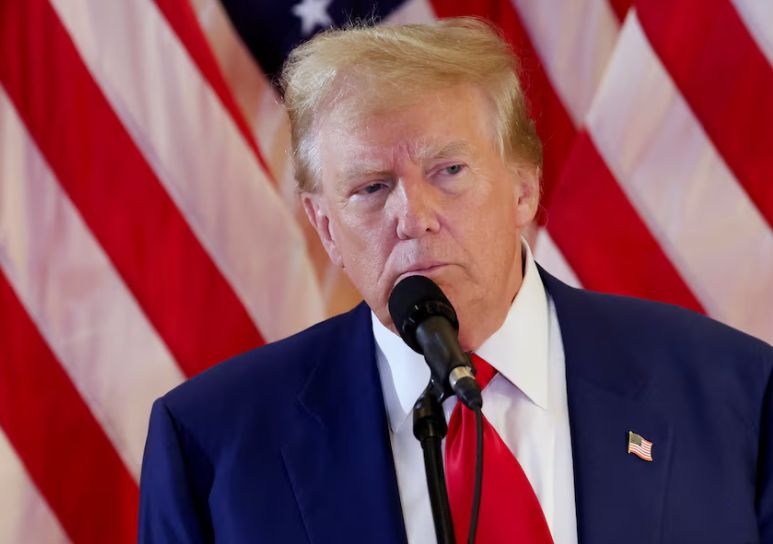Former President Donald Trump is intensifying his legal battle to overturn his 34-count felony conviction for document falsification, arguing that the evidence used in his hush-money and election interference trial should have been protected by presidential immunity.
On July 12, Trump’s defense team filed a motion requesting that the court overturn his conviction, asserting that the Manhattan District Attorney’s office and Judge Juan Merchan improperly rushed the trial while introducing evidence that fell under the scope of presidential immunity.
This argument is based on a recent Supreme Court ruling that broadly defined presidential immunity.
In response, Manhattan District Attorney Alvin Bragg filed a detailed memorandum of law on July 25, challenging Trump’s claims.
Bragg’s 23-page brief argued that Trump’s objections to the use of certain evidence were procedurally flawed and lacked merit.
Trump’s defense contends that evidence from 2017 and 2018, when Trump was in office, was improperly used against him.
They argue that this evidence, which included testimonies from key witnesses and various tweets, was part of his official duties and should have been excluded based on the Supreme Court’s immunity ruling.
Bragg’s opposition highlighted that Trump failed to properly preserve his objections regarding the use of such evidence. Trump’s legal team disputes this, asserting that the Supreme Court’s ruling constituted a “newly announced rule,” and that their pre-trial motions adequately addressed these concerns.
The trial included testimony from Michael Cohen, a former Trump associate, and evidence related to Trump’s White House activities, which the defense argued were directly related to his official presidential actions.
Despite objections from Trump’s legal team, Justice Merchan permitted the evidence in a limited capacity.
Trump’s defense team has cataloged a series of objections raised throughout the trial, challenging Bragg’s assertion that these objections were unpreserved.
They argue that Trump’s motions and objections were consistent and properly addressed both before and during the trial.
As the legal dispute continues, Trump’s defense maintains that the inclusion of White House-related evidence was a significant procedural error that warrants overturning the conviction.

